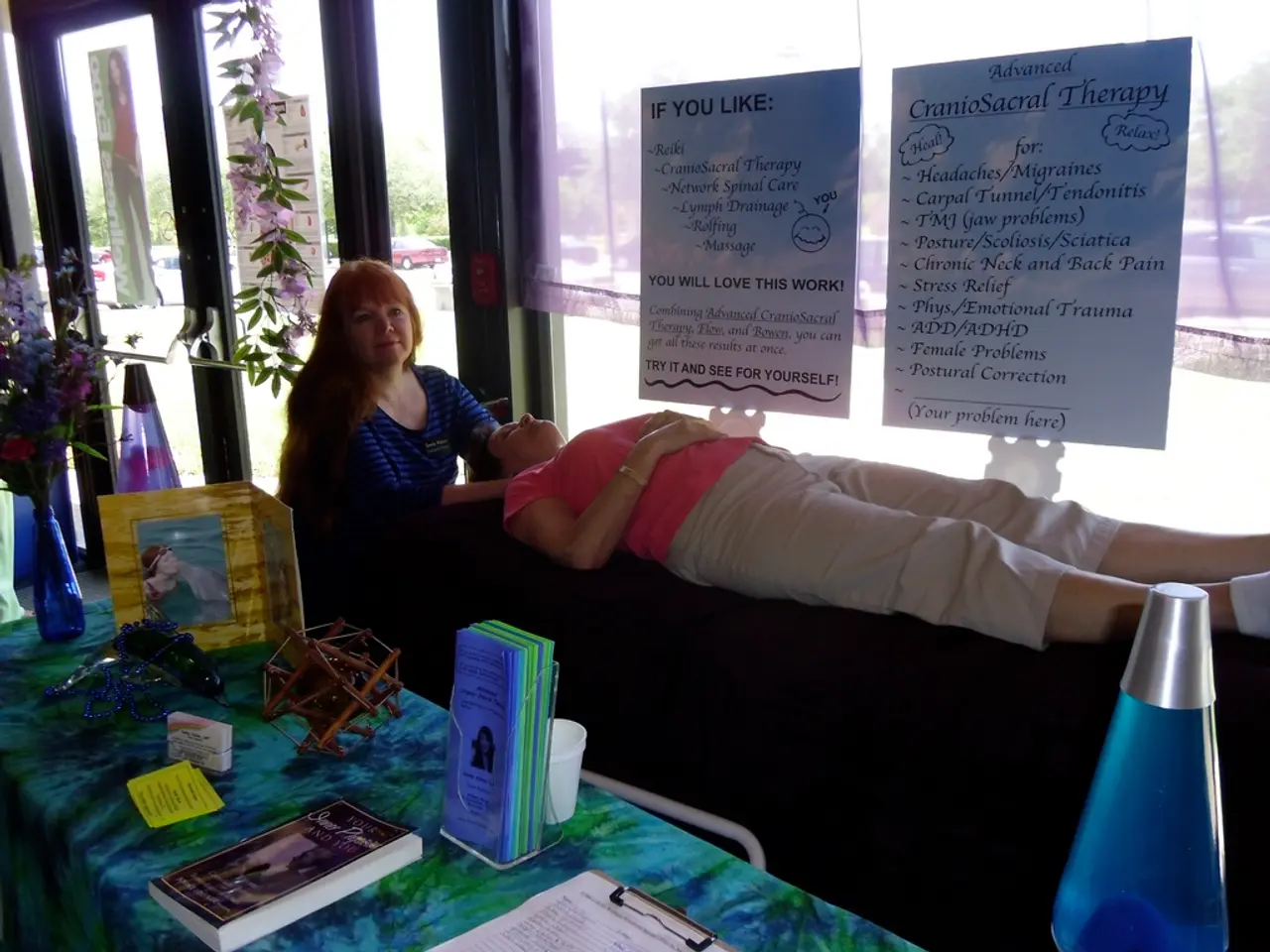Discovering the Ideal Meditation Technique for Yourself
In the fast-paced world we live in, finding time for self-care is more important than ever. One method that has gained significant popularity is the combination of yoga practice with mindfulness meditations. Ashley Elgatian, founder of Tyan Yoga Chicago, advocates for this approach, believing it offers a holistic solution to relaxation and emotional well-being.
One popular mindfulness meditation technique is the '16 seconds' method, developed by David Ji. Based on ancient mindful breathing practices popularized by the Buddha, this short practice can be incorporated into daily life, offering a moment of stillness and tranquility even in the midst of chaos. Whether you're stuck in traffic, waiting in line, or even showering, the '16 seconds' technique can be practiced in various situations.
The '16 seconds' technique isn't just a brief moment of peace; it can also infuse conversations with a sense of calm. By making this practice a habit, you may find yourself speaking with a greater sense of mindfulness and clarity.
Mindfulness meditation offers numerous benefits beyond personal conversations. It can help with mental health issues, relieve stress, improve memory, fight insomnia, and even improve sleep quality. If you're struggling with positive thinking or insomnia, a guided meditation may be particularly beneficial.
There are numerous apps available to help you get started with mindfulness meditation. Headspace app offers a variety of guided meditations, while Insight Timer provides meditations tailored to specific struggles. For those seeking a better night's sleep, Calm app offers Sleep Stories.
Personalization is key when it comes to meditation. With numerous different types and techniques available, finding the right one for you is the first step towards making it a habit. The Awaken meditation app aims to connect your inner state with the outer world, while Headspace at Work helps organizations create a happier, healthier work environment through meditation.
If you're looking to improve your focus and motivation, even in stressful work environments, meditation can be a valuable tool. The right meditation method for self-care involves practices that promote grounding, mindful meditation, and relaxation techniques tailored to your body's natural rhythms, such as yoga combined with breathing and meditation exercises aligned with your internal body clock. These practices support emotional well-being, energy balance, and relaxation essential for self-care.
If exercise is your goal, mindfulness meditation and yoga may be helpful. By focusing on the present moment and your body's movements, these practices can help improve your overall fitness journey.
As more people discover the benefits of mindfulness meditation and yoga, the percentage of Americans who practice these techniques is on the rise. Whether you're new to the practice or a seasoned practitioner, there's never been a better time to embrace mindfulness and reap its numerous benefits.
Read also:
- Peptide YY (PYY): Exploring its Role in Appetite Suppression, Intestinal Health, and Cognitive Links
- Toddler Health: Rotavirus Signs, Origins, and Potential Complications
- Digestive issues and heart discomfort: Root causes and associated health conditions
- House Infernos: Deadly Hazards Surpassing the Flames








